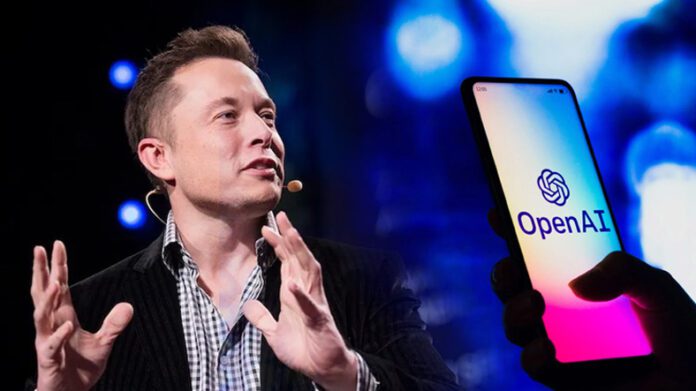In a dramatic turn of events, Elon Musk filed a lawsuit against OpenAI last Friday, alleging that the organization, which he co-founded and later left in 2018, has betrayed its founding mission and is now merely a profit generator for Microsoft. However, the team at OpenAI, led by CEO Sam Altman, has fired back, accusing Musk of essentially doing the same as Microsoft: attempting to take a majority stake in OpenAI and tether the AI company to Tesla to surpass Google.
In a blog post supported by screenshots of old emails sent by Musk, it is stated:
“In early February 2018, Elon forwarded an email to us suggesting that OpenAI should ‘attach itself to Tesla as a cash cow’ and commented that this is ‘exactly right… Tesla is the only way to even come close to rivaling Google. Even then, the likelihood of being a counterweight to Google is low.'”
Shortly after this email exchange, Musk left OpenAI, stating that he wanted to build AGI (Artificial General Intelligence) within Tesla. This seems to contradict what Musk is now accusing OpenAI of – namely, departing from the nonprofit and open-source path and instead commercializing AI systems. Additionally, Musk only invested $45 million in OpenAI, despite allegedly boasting of investing $1 billion. And because he failed to pay at one point, Reid Hoffman, co-founder of LinkedIn who had long been a director at the company, had to inject more money to cover salaries.
In the meantime, Musk has launched his own AI company called xAI, which integrates its in-house chatbot Grok heavily with X/Twitter, and Tesla is also working on humanoid robots. Meanwhile, Microsoft and OpenAI have invested in Figure AI, another company developing robots.
OpenAI had already transitioned from a nonprofit to a for-profit organization many years ago:
“In early 2017, we realized that building AGI would require vast amounts of computational power. We began calculating how much computational power an AGI would plausibly require. We all recognized that we would need significantly more capital to successfully accomplish our mission – billions of dollars per year, far more than any of us, especially Elon, thought we would be able to raise as a nonprofit.”
After Musk‘s departure and the decision to become a for-profit entity had already been made, Microsoft came into the picture. The software giant not only invested $1 billion in 2019 but also provided its Azure cloud for the huge computational capacities needed for training GPT-3 and GPT-4. Early supporter Reid Hoffman, who founded LinkedIn and sold it to Microsoft in 2016, is said to have played a significant role in the Microsoft deal.
The question of whether OpenAI should continue to be called OpenAI as a for-profit entity was also discussed with Musk. Ilya Sutskever, OpenAI‘s chief scientist, argued with Musk many years ago:
“Elon understood that the mission did not mean opening AGI. So Ilja said to Elon: ‘The closer we get to developing AI, the more sense it will make to be less open. The Open in OpenAI means that everyone should benefit from the fruits of AI after it is developed, but it is entirely okay not to share the science…,’ to which Elon replied: ‘Yup’.”
As this legal battle unfolds, it highlights the complex intersection of technology, business, and ethics, shaping the future of AI and its governance. The outcome of this dispute could have far-reaching implications for the development and deployment of AI technologies worldwide.





